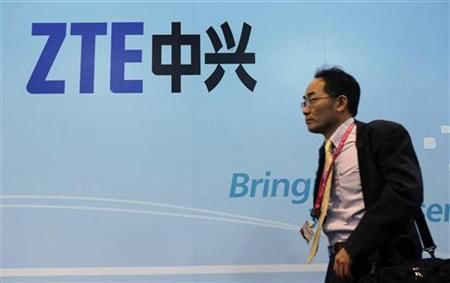Chinese Smartphone Makers Move To Gain Foothold in U.S. Market

Hidden among the big name smartphone releases from HTC, Sony and many others this week were offerings from Chinese manufacturers Huawei and ZTE.
ZTE unveiled Skate, a four-ounce phone equipped with a 4.3-inch screen, 5-megapixel camera, and Android 2.3. Not to be outdone, Huawei unveiled its X3, the latest in its line of Ideos smartphones, and the Ideos S7, its answer to the rapidly-expanding tablet battle.
These devices are small, but important victories for the Chinese companies, who have struggled to expand into the American market. Much of the success of ZTE and Huawei is due to Google's Android platform, which has spared manufacturers the costs of developing and testing their own smartphone operating systems. With minimal effort, manufacturers have been able to port Android over to their devices with companies like building on top of Android with their own custom interface upgrades like HTC's Sense UI.
But, according to IDC senior research analyst Ramon Llamas, the Android approach has its share of hazards. It's all about differentiation, he said. These companies have to ask themselves how well they can differentiate each model from one another.
Llamas said that emphasizing the differences between their phones and those of their competition is one of the keys to success for the Chinese companies. This is especially true as they move to establish their brands in foreign markets like the U.S.
I'd bet you all the money in your wallet that not so many people would be able to recognize a phone from ZTE or Huawei, Llamas said.
This was formerly a concern for the Taiwan-based HTC, which in 2009 began moving away from its white-label past to a more extensive branding of its products.
For many years, HTC has been the company behind the scenes, HTC Chief Marketing Officer John Wang told Wired in 2009. In the earlier days we did not post our brand on the phones. But three years ago we made a decision within the company to build the HTC brand.
That decision was an important one for the company, which went from an obscure feature phone manufacturer to one of the most recognizable smartphone brands today.
ZTE and Huawei would do well to learn from HTC, Llamas said. He noted that much of HTC's success emerged from the company appealing to the U.S. consumer's desire for an emotional connection with their phones.
But the Chinese companies have already built a strong case for themselves, creating well-made phones in high volumes and establishing firm relationships with U.S. carriers like Verizon Wireless.
You have to give these guys credit for putting out entry level phones that don't cost that much, Llamas said.
To contact the reporter responsible for this story call (646) 461 7294 or email r.bilton@ibtimes.com.
© Copyright IBTimes 2025. All rights reserved.



















